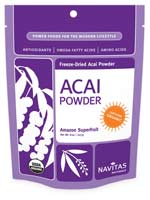Coffee and tea are also products I use on an almost daily basis, which is probably true of many other people as well. Since I can no longer enjoy my decaf soy mocha (or the faux mocha, for that matter), I have been making do with cafe creme (espresso, heavy cream and natural low carb sweetener). But I also enjoy decaf chai with heavy cream and, in the summer, I love iced green tea. In an effort to incorporate the fair trade version of these beverages into my diet, I found this website:http://www.groundsforchange.com/index.php? and have made orders for medium dark decaf espresso grind and a medium dark French press grind, as well as Dragon Well Green Tea (they didn't have decaf chai, so I'll need to go looking for it elsewhere). I'll let you know how they turn out.
May 14th is Fair Trade Day and I thought I'd write a little about what it means to use fair trade products. I'll be including a list later of fair trade companies. There are some basic principles that all fair trade goods much adhere to. The production of these goods must be free of forced labor or poor working conditions. In order to be certified, the crops must be raised through sustainable methods and no genetically modified crops can be certified as fair trade.
As for chocolate, there are many companies that now offer fair trade chocolate. The problem lies in finding 100% cacao fair trade products. Dagoba is one company, but they happen to be owned by Hershey's, which sells products that use cocoa that is produced in parts of the world known for child slavery. Newman's Own and Green & Blacks use fair trade cocoa beans, but they don't have unsweetened chocolate. So I turn to Navitas Naturals again - they have unsweetened cacao paste, cocoa nibs, and cocoa powder. They also have cacao butter, which I use when I'm making chocolate candy.
For more information on which brands are fair trade here is the url for: http://fairchocolate.org/companies.html .
If you want to educate yourself further, watch "Black Gold: The Story Behind Coffee", a documentary about the exploitation of workers and how multinational corporations dominate an industry worth over $80 billion, making coffe the most valuable trading commodity in the world after oil. Check it out at
http://blackgoldmovie.com/.
I'll be doing a post featuring recipes made with fair trade products, including hemp seeds, chia seeds, acai powder, and coconut manna (pictured below), as well as all of the products pictured above.
I look forward to sharing these recipes with you, which use ingredients that are whole food, raw food, and vegan, as well as low carb and gluten free. See you soon!









